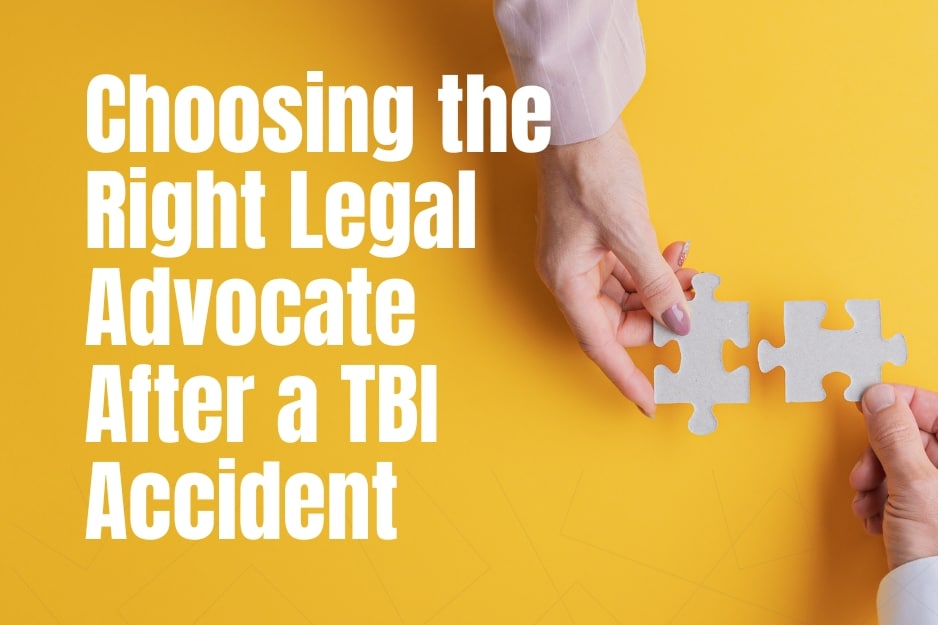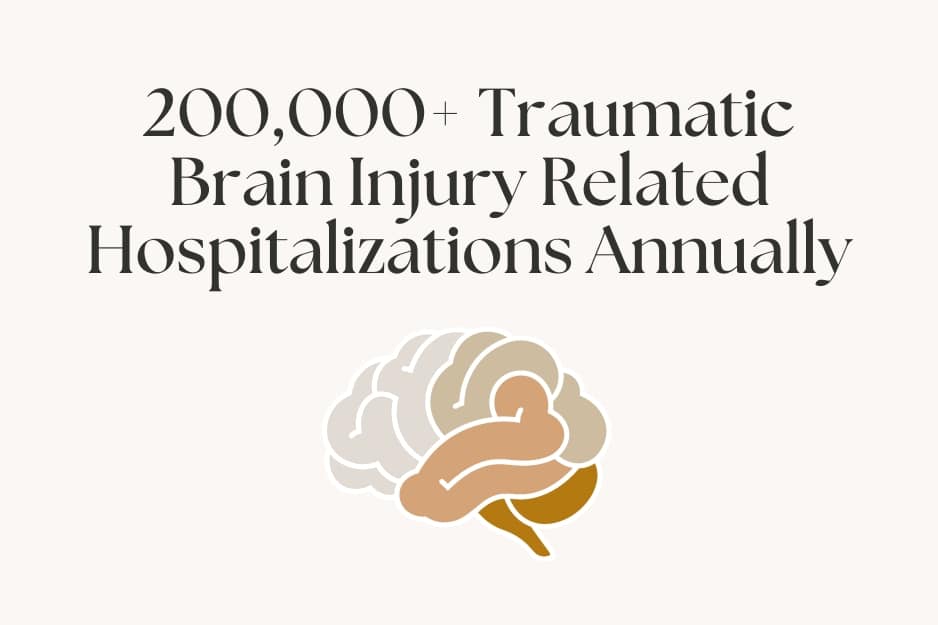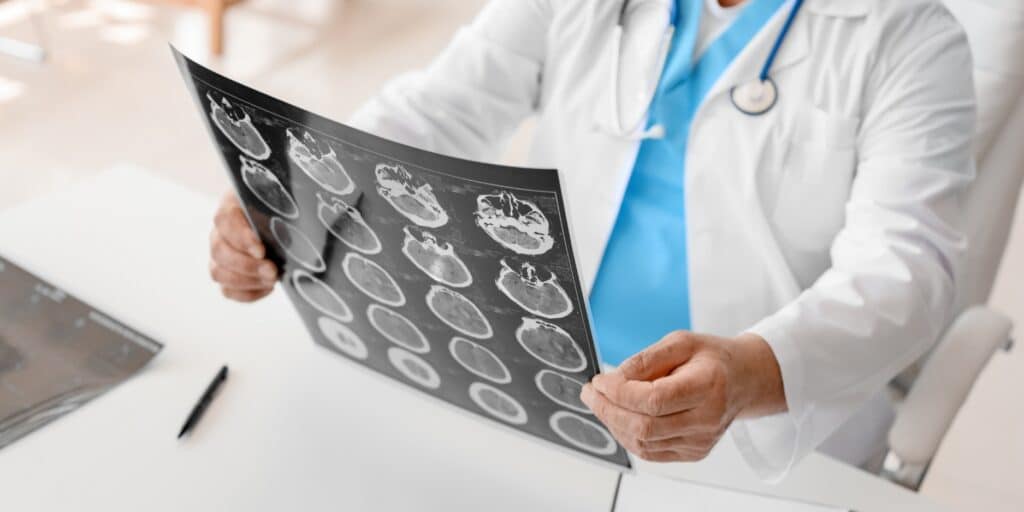The most common types of personal injury lawsuits include motor vehicle accident cases, product liability cases, dog bite cases, and medical malpractice cases, among others. A TBI accident can happen in many types of accidents involving negligence.
In any of these cases, a traumatic brain injury (TBI) can occur, which can have short-term or long-term effects on the brain and body as well as physical, neurological, and psychological complications or even death.
Thus, cases that involve traumatic brain injuries differ from other personal injury cases due to the complexity and potential permanency of the condition, for which an injured party may not be able to be made “whole” again. This type of harm factors into the overall value of a case.
In personal injury lawsuits, the injured party (plaintiff) files a civil action against the person or entity (defendant) responsible for his or her injuries to obtain financial compensation for the harm suffered.
To have a successful claim, the plaintiff must prove that the defendant’s action or inaction was negligent, or otherwise the fault and cause of the injury. Thus, the overall purpose of personal injury claims is to make the injured party “whole.”
The hope is that the compensation obtained can restore the injured party to their pre-injury condition.
What is a TBI?
A TBI is an injury that occurs in the brain caused by a sudden external force or a jostling to the head or body. The injury can cause mild to severe complications for an individual, affecting them physically, emotionally, cognitively, and neurologically. All of these can be either short-term, long-term, or permanent.
Thus, these cases require a special level of care and analytical representation unparalleled by other types of personal injury cases. This is due to the challenges of establishing liability and seeking large compensation for an often “invisible” or hard-to-detect injury.
TBIs are typically classified by severity (mild, moderate, severe) and by type, based on how the injury occurs and which brain structures are affected.
Even “mild” injuries can have serious consequences, so understanding the types helps patients and families recognize symptoms and seek appropriate care.
What are the Different Types of Traumatic Brain Injury?
Concussion (Mild TBI): The most common form of TBI, a concussion, is caused by a sudden impact or shaking of the head that leads to temporary brain dysfunction. Symptoms may include headaches, dizziness, confusion, memory problems, sensitivity to light, sleep disturbances, and mood changes. Loss of consciousness may or may not occur. While most people recover, repeated concussions or inadequate rest can prolong symptoms and increase long-term risks.
Contusion (Brain Bruise): A contusion is a focal area of bleeding and swelling in the brain tissue, usually at the impact site (coup) or on the opposite side due to the brain rebounding within the skull (contrecoup). Larger contusions can increase pressure inside the skull and may require monitoring or surgery. Symptoms vary based on location but can involve cognitive, sensory, or motor changes.
Diffuse Axonal Injury (DAI): Often resulting from high-speed acceleration–deceleration (such as car crashes), DAI stretches and shears the brain’s nerve fibers (axons) throughout multiple regions. Because the damage is widespread and microscopic, it can be hard to detect on standard imaging. DAI is associated with loss of consciousness, prolonged coma in severe cases, and long-term cognitive and functional impairments.
Penetrating Injury (Open Head Injury): These injuries occur when an object breaks through the skull and enters the brain, such as shrapnel or a bullet. Damage is typically focal but severe, and there is a high risk of bleeding, infection, and seizures. Surgical intervention is common, followed by intensive rehabilitation.
Hematomas: Traumatic bleeding can collect in or around the brain and compress delicate tissue.
Epidural hematoma: bleeding between the skull and the dura (outer brain covering), often from arterial injury; may have a brief “lucid interval” followed by rapid decline—this is a surgical emergency.
Subdural hematoma: bleeding beneath the dura, often venous; can be acute (after major trauma) or chronic (developing over weeks, sometimes after minor head injury, especially in older adults or those on blood thinners).
Effective Attorney Advocacy in Traumatic Brain Injury Claims
Effective attorney advocacy for TBI cases requires a strong understanding of the catastrophic injury and its invisible nature. TBIs are often considered “invisible injuries” because it can take some time for the effects of the injury to appear.
Unlike bone injuries or bruises to the skin, an injury to the cranium is not visible to the naked eye. It can lead to many other subsequent impairments. This makes it easier to identify and treat them separately, rather than connecting them all to one brain injury.
Expert opinions, medical records, and witness testimonies are crucial to connect all the dots. An experienced personal injury lawyer will:
- Identify the injury
- Establish liability for the injury
- Convey the full impact of the injury on the plaintiff’s quality of life.
Experienced TBI attorneys will properly assess their damages, and a strong case can be built.
Choose Our Highly Qualified Injury Lawyers Today
At The Yost Legal Group, we provide both compassion and results. Our skilled personal injury attorneys handle all types of TBI cases. While you receive the medical treatment you need, we will work towards securing the compensation you deserve.
We have an extensive network of supportive experts that collectively help navigate the complexities of these more complex cases.
Our TBI lawyers have a deep understanding of the profound impact a traumatic brain injury can have. It affects both the injured party and their loved ones.
Did you or a loved one suffer a TBI due to the negligence or misconduct of another person? Call us today at 1 (800) YOST-LAW (1-800-967-8529) or fill out the Free Consultation form on our website. We will be in touch shortly to conduct your complimentary case review. It is essential to know your legal options.
Traumatic Brain Injury Law Firm – Personal Injury Law Firm – Catastrophic Injury Lawyers







